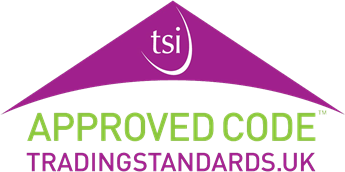
Dealing with tenants whilst living in a different country can be extremely stressful. According to Property Reporter, 66% of landlords found managing their properties more stressful than their full, or part time jobs.
It can be tempting to cut out the middle man – therefore, saving agency fees. The drawback is finding tenants, managing maintenance issues and collecting rent. It is an even bigger problem if residing in a location with a different time zone, as property viewings will be limited. Furthermore, inventories must be carried out, repairs done and the return of the deposit negotiated at the end of every tenancy. All of this can be extremely stressful as 66% of landlords in the UK have found managing their properties more stressful than their actual job.
Hiring a letting agent brings great benefits as they can find tenants for the property quickly due to their marketing and purchase power. They can make management easy by handling prospective tenant negotiations, carrying out property viewings, collecting rents and conducting property maintenance. Due to negotiations with preferred suppliers, letting agents are able to perform routine maintenance at lower costs. That can be highly useful since the boiler or central heating can break down during the night. Furthermore, proprietors will only be in contact with the agency rather than being bombarded with calls and emails every day.
All proprietors that live abroad for more than six months per year are classified by HMRC as non-resident landlords and are required to pay tax based on the rental income received. The non-resident landlords’ scheme applies to all non-resident landlords unless tenants pay rent of £100 or less a week. Letting agencies can save you the hassle from tax management and deduct Basic Rate tax from the rent which they collect on your behalf or pay the taxable income to a non-resident client. The scheme applies even if the rent amount is less than £100 a week, unless the letting agent has received written notice from HMRC’s Centre for Non-residents informing them not to. An application must be filed with HMRC in order to receive UK rental income without the deduction of UK tax beforehand.
Many expats buy property in the UK as the rental income is likely to be paid in sterling to a UK account. However, it might be necessary to transfer the money into a local currency each month. It is therefore advisable to explore currency specialist options and opt for one who can manage to buffer the impact of currency fluctuations. Alternatively, having a bank account in the UK will help avoid international transfer fees.
It might be necessary to go through the terms and conditions of your loan and inform your mortgage lender before letting out the property. If making use of a letting agent, make sure what the contract covers is well understood as well as what costs are involved. It would be advisable to understand how letting agents compare with each other and how any services not provided by the agent will be dealt with by the proprietor. At Intus Lettings, we offer both a let-only and fully managed service for more flexibility, and you can save more thanks to our highly competitive streamlined fees.




